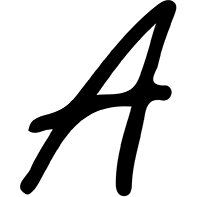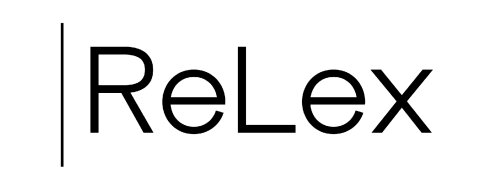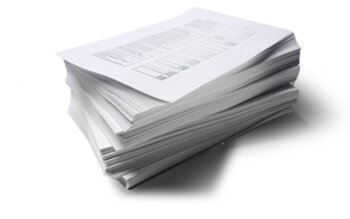Best Brokerage Lawyers in Vilnius
Share your needs with us, get contacted by law firms.
Free. Takes 2 min.
Free Guide to Hiring a Real Estate Lawyer
List of the best lawyers in Vilnius, Republic of Lithuania
About Brokerage Law in Vilnius, Republic of Lithuania
Brokerage law in Vilnius, Republic of Lithuania, revolves around the regulation and oversight of activities that involve the buying and selling of financial instruments, such as stocks, bonds, and commodities. This field is governed by both national and EU regulations, ensuring a harmonized approach across member states. In Vilnius, brokerage activities are subject to stringent compliance requirements to maintain transparency, protect investors, and prevent financial fraud. The Bank of Lithuania is the primary regulatory authority overseeing these activities, and it sets forth guidelines that brokers must adhere to in their operations.
Why You May Need a Lawyer
There are several scenarios where you might require legal assistance in the field of brokerage:
- Dispute Resolution: Conflicts with brokerage firms over transactions or contract terms.
- Regulatory Compliance: Ensuring your brokerage business complies with local and EU laws.
- Fraud and Misconduct: Addressing issues where fraud is suspected, either by a broker or against you.
- Contract Review: Getting legal advice on complex brokerage contracts and agreements.
- Tax Implications: Understanding the tax obligations related to brokerage activities in Lithuania.
Local Laws Overview
Key aspects of local laws affecting brokerage in Vilnius include:
- Licensing Requirements: Brokerage firms must obtain the appropriate licenses from regulatory bodies.
- EU Regulations Compliance: Firms must comply with EU directives, such as MiFID II, concerning financial market transparency and consumer protection.
- Investor Protection: Rules are in place to protect investors, including proper disclosures and fair treatment by brokers.
- Anti-Money Laundering Laws: Firms must adhere to strict anti-money laundering practices to prevent financial crime.
- Electronic Trading Norms: Increasing reliance on electronic platforms mandates specific rules for security and operational standards.
Frequently Asked Questions
What is the role of the Bank of Lithuania in brokerage activities?
The Bank of Lithuania acts as the main regulatory authority overseeing brokerage activities, ensuring that firms comply with national and EU regulations to safeguard the integrity of financial markets.
Do I need special training to operate as a broker in Vilnius?
Yes, brokers are typically required to possess specific knowledge and certifications to demonstrate their capability in handling financial transactions and understanding regulations.
What are my rights as an investor in Lithuanian brokerage markets?
Investors have the right to transparent disclosures, fair treatment by brokers, protection of assets, and to file complaints should there be any irregularities in transactions.
How can I verify if a brokerage firm is legitimate?
You can check the firm’s licensing status on the Bank of Lithuania’s official website, which lists all licensed and compliant brokerage entities.
What should I do if I suspect fraudulent activities by my broker?
Report the issue to the Bank of Lithuania and seek legal advice to understand your options for recourse and protection of your investments.
Are there specific taxes on returns from brokerage investments?
Yes, income generated from brokerage activities may be subject to capital gains tax, and it's advisable to consult with a tax professional or an attorney for guidance.
How can I lodge a complaint against a brokerage firm?
Complaints can be lodged directly with the Bank of Lithuania, through their consumer complaints service or via their online platform.
What is the impact of MiFID II on local brokerage activities?
MiFID II aims to increase transparency in financial markets, which affects local brokers by imposing stricter reporting and disclosure requirements, ensuring better protection for investors.
Are digital platforms for brokerage legal in Lithuania?
Yes, digital brokerage platforms are legal but must comply with specific regulatory standards to ensure security and operational integrity.
Can foreign nationals participate in the Lithuanian brokerage market?
Yes, foreign nationals can engage in brokerage activities, subject to local laws and regulations, and they may require additional documentation for compliance.
Additional Resources
For anyone needing more information or assistance, the following resources can be immensely helpful:
- Bank of Lithuania: The primary regulatory body for financial services and brokerage in Lithuania.
- Ministry of Finance of the Republic of Lithuania: Provides insights into financial regulations and tax implications.
- Local Legal Firms: Firms specializing in financial services law can provide tailored advice and legal assistance.
- Lithuanian Financial Markets Association: A professional body that supports and advocates for the interests of members involved in financial markets.
Next Steps
If you need legal assistance in brokerage, consider the following steps:
- Consult a Lawyer: Reach out to a lawyer specializing in financial services within Lithuania to get tailored advice.
- Gather Documentation: Collect all relevant documents related to your brokerage activities and transactions.
- Understand Your Rights: Ensure you’re aware of your legal rights and obligations as an investor or broker.
- Report Issues: Do not hesitate to report any concerns or irregularities to the appropriate regulatory bodies.
Seeking professional legal guidance can safeguard your interests and ensure compliance with Lithuania’s regulatory landscape in the brokerage sector.
Lawzana helps you find the best lawyers and law firms in Vilnius through a curated and pre-screened list of qualified legal professionals. Our platform offers rankings and detailed profiles of attorneys and law firms, allowing you to compare based on practice areas, including Brokerage, experience, and client feedback.
Each profile includes a description of the firm's areas of practice, client reviews, team members and partners, year of establishment, spoken languages, office locations, contact information, social media presence, and any published articles or resources. Most firms on our platform speak English and are experienced in both local and international legal matters.
Get a quote from top-rated law firms in Vilnius, Republic of Lithuania — quickly, securely, and without unnecessary hassle.
Disclaimer:
The information provided on this page is for general informational purposes only and does not constitute legal advice. While we strive to ensure the accuracy and relevance of the content, legal information may change over time, and interpretations of the law can vary. You should always consult with a qualified legal professional for advice specific to your situation.
We disclaim all liability for actions taken or not taken based on the content of this page. If you believe any information is incorrect or outdated, please contact us, and we will review and update it where appropriate.















